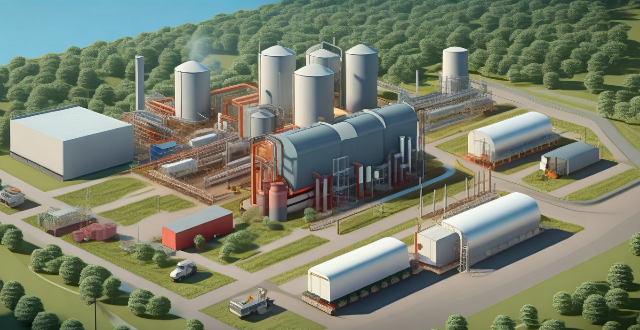Investing in energy-efficient industrial equipment can lead to reduced energy costs, increased production efficiency, potential tax incentives and grants, enhanced competitiveness, improved environmental sustainability, and greater long-term asset value. These benefits make such investments financially prudent and strategically sound for businesses looking to remain competitive and responsible in today's market.

What are the economic benefits of investing in energy-efficient industrial equipment?
Investing in energy-efficient industrial equipment can bring numerous economic benefits to businesses. These benefits can be categorized into the following areas:
1. Reduced Energy Costs
- Lower Operating Expenses: Energy-efficient equipment typically consumes less power, resulting in lower electricity or fuel bills for the business.
- Predictable Expense Growth: As energy prices tend to rise over time, using less energy means that future cost increases will have a smaller impact on your budget.
2. Increased Production Efficiency
- Higher Throughput: Modern, energy-efficient machinery is often designed with productivity in mind, which can lead to faster processing times and increased output.
- Improved Quality Control: Advanced technology frequently includes better monitoring and control systems, leading to higher product quality and fewer defects.
3. Tax Incentives and Grants
- Government Rebates: Many governments offer tax credits or rebates for companies that upgrade to energy-efficient equipment.
- Grant Opportunities: There may also be grants available from local, state, or federal agencies aimed at promoting energy conservation and sustainability practices.
4. Enhanced Competitiveness
- Cost Advantage: By reducing operational costs, businesses can either lower their prices to be more competitive or maintain current pricing and increase profit margins.
- Market Differentiation: Some consumers prefer to buy from environmentally conscious companies, so energy efficiency can become a selling point.
5. Environmental Sustainability
- Reduced Carbon Footprint: Using less energy means producing fewer greenhouse gas emissions, contributing to a smaller carbon footprint for the company.
- Resource Conservation: More efficient use of resources not only saves money but also aligns the company with sustainable practices, which is increasingly important for corporate social responsibility.
6. Long-Term Asset Value
- Longevity of Equipment: Energy-efficient machines are often built with newer technologies and materials that can extend their useful lifespan.
- Resale Value: Should you decide to upgrade again in the future, energy-efficient equipment generally retains better resale value due to its ongoing demand and association with modern standards.
In summary, the economic benefits of investing in energy-efficient industrial equipment include reduced energy costs, increased production efficiency, potential tax incentives and grants, enhanced competitiveness, improved environmental sustainability, and greater long-term asset value. These advantages make such investments not only financially prudent but also strategically sound for businesses looking to remain competitive and responsible in today's market.